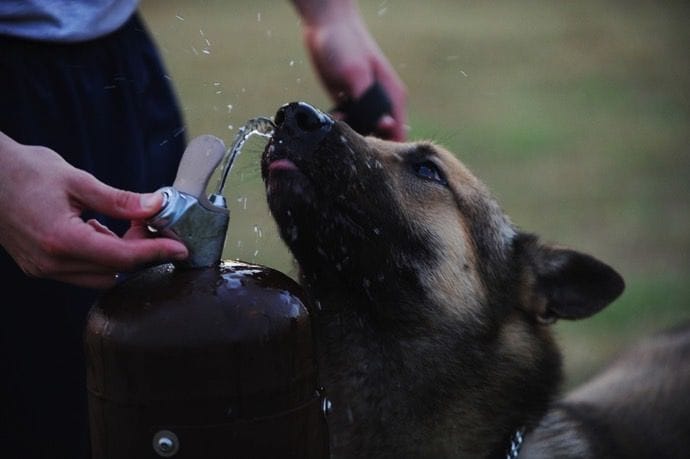Is Your Dog Restless at Night? Here’s What’s Going On
Is your dog restless at night? Aging, anxiety and lack of exercise are some of the common causes. Here’s some help in getting him to rest (so you can, too).
After a long day at work, you look forward to a restful night of sleep (with or without your dogs in the bed!). But your dog may have different ideas. Is your dog restless at night? While sleepless nights can be common for new puppies or even some younger dogs, the restlessness will usually die down once the dog matures.
However, if you notice that your dog is no longer sleeping through the night, is constantly changing positions, or pacing around the room or throughout the house, there may be a more serious underlying issue that needs to be addressed. A dog who’s restless at night may signify different age or behavior issues that require some gentle intervention.
Is Your Dog Restless at Night? Dog Restlessness and Activity During the Day
If you don’t provide your dog with the daily exercise he requires, it could result in behavioral issues. Simply put, puppies and dogs need to move and expend their energy. They need to play and run to burn off energy — plus it’s a perfect way to work on your bond, including the practice of some important training cues.
It could be as easy as a walk or a game of fetch. If you have an older, calm dog, he may simply need a short stroll down the block to burn some energy. If you have a young and/or excitable dog, you may need a daily play session in the backyard to adequately tire him out. Remember: A tired dog is a happy dog!
“Because exercise decreases anxiety overall, lack of exercise can contribute to anxiety-based conditions. More specifically, lack of exercise and mental stimulation can lead to attention-seeking and destructive behaviors,” says Stephanie-Borns-Weil, DVM, DACVB, head of the behavior clinic at Tufts University’s Cummings School of Veterinary Medicine. “Ideally, a young, healthy dog should have a minimum of 20-30 minutes of daily aerobic exercise. Some ways to get your dog’s heart rate elevated include long walks, running, fly ball, games of Frisbee or fetch, and swimming. Swimming is especially great for older dogs as it is not as demanding and puts less stress on their joints than other kinds of aerobic exercise.”
Suffering from interrupted sleep yourself? Here are some natural restless leg syndrome treatments >>
Anxiety Can Cause Dogs to Get Restless at Night
Is your dog restless at night even though he’s getting enough exercise during the day? While activity can definitely help, canine anxiety can have many causes and may be subtle enough that some dog owners won’t necessarily notice. This can affect a dog’s sleep schedule and result in a dog who’s restless at night.
Talk to your dog’s veterinarian if medication is warranted, or even an appointment with a board-certified animal behaviorist. Also, there are calming supplements on the market that can be beneficial, but be sure to check with your vet first before you purchase anything to be sure if it’s safe and appropriate for your particular pet.
Aging and Dogs Who Are Restless at Night
Still looking to find out why your dog is restless at night? As dogs get older, they can easily become restless at night — and the reason why is pretty common. Age typically brings on joint and muscle pain, which can make sleeping more difficult due to discomfort. The onset of dementia can also cause sleep disturbances in dogs. It is important to try and help the quality of life for a senior dog. Again, a consultation with your veterinarian is helpful in a case like this.
For an older dog with typical aches and pains, you might want to consider providing an orthopedic dog bed (younger animals may benefit from this, as well).
Source: Dogster




No comments:
Post a Comment